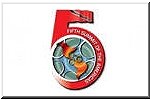By Stephen Kangal
April 24, 2009
 The hosting of the recently concluded Fifth Summit of the Americas was portrayed as a CARICOM initiative and, as usual, T&T bore the full costs involved.
The hosting of the recently concluded Fifth Summit of the Americas was portrayed as a CARICOM initiative and, as usual, T&T bore the full costs involved.
I am very disturbed that T&T/CARICOM did not act collectively in an effective manner to maximize returns on T&T’s huge and staggering investment. The CARICOM meeting that was scheduled for Thursday 16 April was not held. No effort was made to concretize a CARICOM strategy at the Inter-Sessional Meeting of the Heads of Government held in Belize prior to the Summit.
Critics have identified the following issues that were considered as important planks of a CARICOM strategy and agenda:
— Filling the gap that has arisen from declining remittances received in the Caribbean from the US that in fact led to the imposition of new taxes in Jamaica that threatens to result in social unrest.
— The strategic location of the Caribbean being caught in the vice and violence of the illicit drug trade and human trafficking that are wrecking social havoc and mayhem resulting from a turf war.
— Correcting the restrictions of a small market size (5m) by newer free trade access (trade not aid needed)
— The special needs and vulnerability of Caribbean Small Island Developing States (SIDS) in recessionary times with the tourism industry in decline.
— Cultural attitudes, from both south and north, that reduce the Caribbean to the status of a playground and its people to the role of playthings
— A strong CARICOM position on Cuba to reinforce the ALBA initiative.
— The effects of sea-level rise on the land space of Caribbean SIDS
— Financing of the CDB and IADB from G.20 provisioning proposals amounting to US$ 1.2 trillion along the lines of President Hugo Chavez and the need to relax stringent IMF conditionalities and complex accessing procedures.
— Confronting the current economic and financial crisis plaguing the tourism-based economies of the Caribbean as a matter of some concern and the need for a stimulus package to increase consumption.
— Tightening of off-shore banking regulations of financial entities operating in the Caribbean resulting from the decisions of the London G. 20 Meeting.
— Decline in the tourism industry and persistent industrial output reduction and increase in unemployment rates.
— Fiscal and balance of payments support from financial institutions.
— Debt relief and aid for Haiti
— Lifting of US economic blockade of Cuba and re-admission into the OAS.
— Tightening of US gun laws to redress easy access from the lawless elements of the Caribbean
— Ending the indiscriminate policy of social dumping
— Collaboration to achieve a more sustainable development path of economic transformation in the Caribbean
— Indiscriminate off-loading of detainees from the USA without consultations with Caribbean countries.
— Renewing efforts to resuscitate the ailing FTAA for which T&T wanted to host the headquarters in POS at the Waterfront Center
— Caribbean leaders have been urged by the President of the CDB, Professor Compton Bourne to seek trade benefits rather than aid;
— Engagement with the five LA members of the G.20 that is to say Canada, Mexico, Argentina, USA and Brazil.
— Tailoring of rigid and stringent IMF conditionalities to enable poorer Caribbean countries to benefit.
Let me say that the statement delivered by CARICOM Chairman Dean Barrow, Prime Minister of Belize at the Opening Ceremony was more notable for its attempts at achieving elegance than for the real and effective communication of burning issues on the CARICOM agenda.

Mr. Stephen Kangal,
In regards to your 2003 online article regarding the tassa to be a national instrument, you have posted WRONG information about the tassa drum. It is NOT indegenous to Trinidad & Tobago; how do you know that the tassa came from just UP and Bihar only, and that it is extinct there? Have you been to India to prove such a claim? You obviously don’t know anything about tassa and you are misleading the people. I am an East Indian with parents from India, and the tassa drum is the most common drum used for festivals. Indians in Trinidad and Tobago didn’t just come from UP & Bihar, but Tamil Nadu, Andhra Pradesh, Kerala, Goa, Mumbai, etc. and all these areas have tassa there. You need to research your facts before making such claims; it disgusts me how some Trinidadian Indians claim that tassa is from Trinidad. Ask Lenny Kumar of Trinidad & Tobago Sweet Tassa, he has played with tassa drummers IN INDIA, and he will tell you.